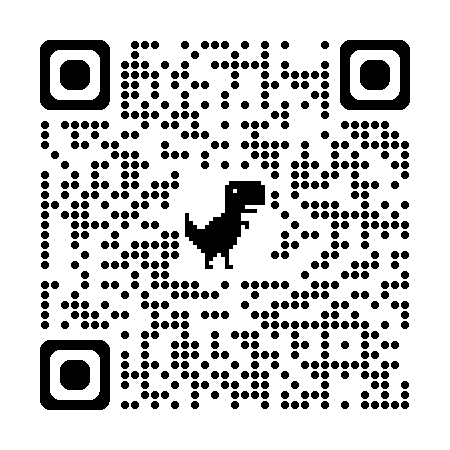Exposure to and Knowledge of Media Messages on Exclusive Breastfeeding among Mothers in Three States in South-East Nigeria
Keywords:
Exclusive, breastfeading, mothers, media, messages, knowledgeAbstract
Background: Exclusive breastfeeding (EBF) involves providing only breast milk to respond to the infant's total nourishment needs within the first six months of life. Breast milk contains all the essential nutrients, antibodies, and other growth and development factors. EBF enhances an infant's immune system and vaccination response.
Objective: This study examined exposure to and knowledge of media EBF messages among mothers in three states in South-East Nigeria.
Methodology: The survey method was adopted to conduct the study among 370 registered antenatal mothers selected through a multistage sampling technique in three primary and three tertiary hospitals. A structured questionnaire was used as the instrument for data collection. The data were analysed using percentages and the chi-square test of association, and results were presented in tables.
Results: Breastfeeding mothers were highly aware of EBF and knowledgeable, with a significant relationship between awareness and knowledge of media messages on EBF. Exposure to media messages improved knowledge and responses to EBF. However, responses to messages were constrained by economic, cultural, and social factors such as myths and family pressure.
Conclusion: Nursing mothers are highly exposed to media messages on EBF, which shows that the media plays a significant role in EBF campaigns.
Unique contribution: The study has identified the significant role of media messages in creating awareness of the importance of EBF among mothers. The study has also identified the limitations of adopting media messages on EBF.
Key Recommendation: Media messages on EBF should aim more at counteracting myths and misinformation in the South-East region. Health professionals should harmonise their messages with media messages to enhance persuasive effects.
References
Agunbiade, O. & Ogunleye, O. (2012). Constraints to exclusive breastfeeding practice among breastfeeding mothers in Southwest Nigeria: implications for scaling up. International breastfeeding journal, 7, 1-10.
Chukwu-Okoronkwo, S., Okugo, U., Ihechu, I & Okoronkwo, N. (2019). Impact assessment of exclusive breastfeeding media campaign among mothers in selected metropolitan cities in south east Nigeria. Research on Humanities and Social Sciences, 9(14), 36-144
Ezeah, G. & Odionye, C. (2017). Exclusive Breastfeeding Media Campaigns Among Nursing Mothers in Imo State, Nigeria, International Journal of Research in Arts and Social Sciences, 10(1), 308 – 325.
Ezeh, N. (2020). Media Campaign on Exclusive Breastfeeding: Awareness, Perception, and Acceptability among Mothers in Anambra State, Nigeria. In Media Controversy: Breakthroughs in Research and Practice (pp. 677-698). IGI Global.
Flax, V., Ipadeola, Schnefke, C, Ralph-Opara, U., Adeola, O., Edwards, S…. & Brower, A. (2022). Breastfeeding interpersonal communication, mobile phone support, and mass media messaging increase exclusive breastfeeding at 6 and 24 weeks among clients of private health facilities in Lagos, Nigeria. The Journal of Nutrition, 152(5), 1316-1326.
Mashreky, S. Rahman, F., Rahman, A., Talab, A., & Rahman, Z. (2015). Role of mass media in increasing knowledge and practices of mothers on IYCF: findings from a community trial in rural Bangladesh. South East Asia Journal of Public Health, 5(1), 18-24.
Muanya C. & Adekunle, R. (2016). Guardian. Boosting Breastfeeding in Nigeria Retrieved on December 5th 2016 from https://guardian.ng/features/boosting-breastfeeding-in-nigeria/
Naugle, D. (2016). The evaluation of a mass media campaign to promote exclusive breastfeeding in Vietnam. University of Pennsylvania.
Nguyen, P., Kim, S., Nguyen, T., Hajeebhoy, N., Tran, L, Alayon, S., ... & Menon, P. (2016). Exposure to mass media and interpersonal counseling has additive effects on exclusive breastfeeding and its psychosocial determinants among Vietnamese mothers. Maternal & child nutrition, 12(4), 713-725.
Nzete, O. (2010). Analysis of Media Campaign on Exclusive Breast Feeding in Abia State. MA thesis, University of Nigeria, Nsukka.
Utalor, C. (2019). Influence of broadcast media messages on awareness, perception and attitude of maternal health among reproductive women in Ilorin. African Journal of Social Sciences and Humanities Research, 2(1), 57-116.
Uwalaka, T., & Nwala, B. (2020). Social media influence on exclusive breastfeeding among expecting mothers in Port Harcourt. The Nigerian Journal of Communication (TNJC), 17(2)
Victora, C. G., Bahl, R., Barros, A. J. D., França, G. V. A., Horton, S., Krasevec, J., … Rollins, N. C. (2016). Breastfeeding in the 21st century: Epidemiology, mechanisms, and lifelong effect. Lancet, 387, 475 – 90.
Walters, D., Eberwein, J.D., Sullivan, L., D’Alimonte, M. & Shekar, M. (2017). An investment framework for meeting the global nutrition target for breastfeeding. Washington, DC: World Bank Group. DOI:10.1596/978-1-4648-1010-7.
WHO/UNICEF. (1990, December). Innocenti declaration on the protection, promotion and support of breastfeeding. In WHO/UNICEF, Breastfeeding in the 1990’s: A global initiative meeting in Florence, Italy and New York. Geneva, Switzerland: WHO/UNICEF.
WHO. (2014). Global nutrition targets 2025: Breastfeeding policy brief (No. WHO/NMH/NHD/14.7). World Health Organization.ed
Downloads
Published
How to Cite
Issue
Section
License
Copyright (c) 2024 Olanrewaju Abosede Mgboji, Michael O. Ukonu

This work is licensed under a Creative Commons Attribution-NonCommercial-ShareAlike 4.0 International License.



